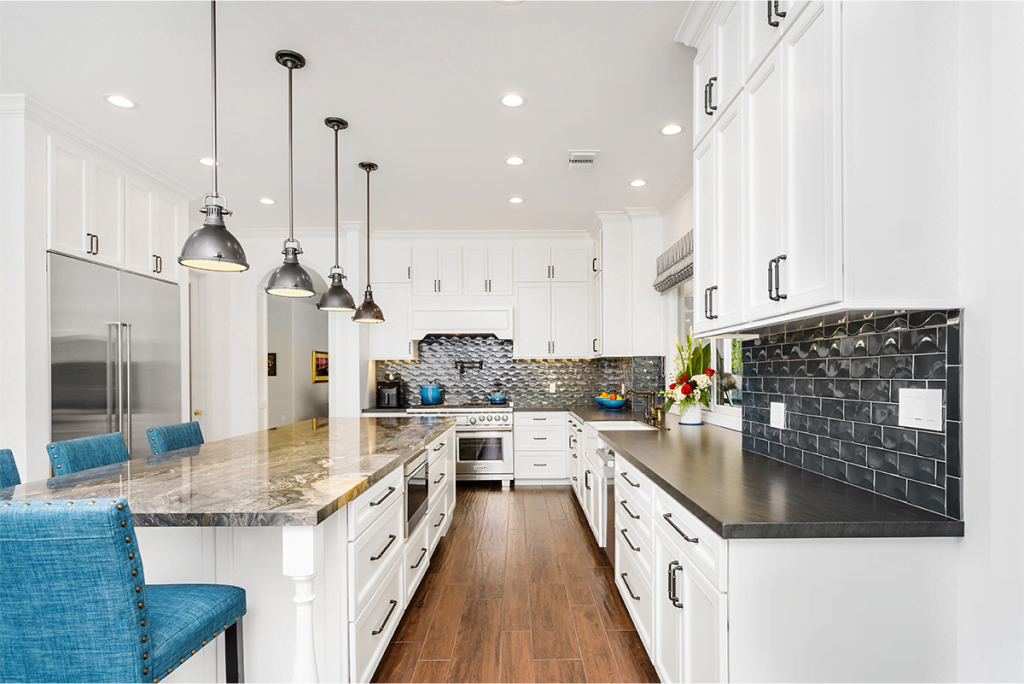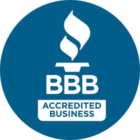Normal routine maintenance for marble surfaces involves only periodic washing with clean, potable water and mildly alkaline cleaners. Soap-less cleaners are preferred because they minimize streaking and filming. However, mild, phosphate-free biodegradable liquid dish soaps, soap flakes or powders are acceptable if rinsing is thorough.
Begin by applying clean, hot water (not boiling) on the surface. Next, using the cleaning solution (following the manufacturers directions) wash in small, overlapping sweeps. Rinse thoroughly with clean, potable water to remove all traces of soap or cleaner solution. Change the water in the rinse pail frequently. Dry with a soft cloth or cotton-flannel, and allow to thoroughly air-dry before applying top-dressings. Chamois skin may be used in lieu of cotton cloth in this process.


Marble is a natural stone and should receive careful attention to prevent damage. It is common policy to use rubber-bottom coasters under all glasses. Placemats or color-fast felt bottoms should be used under anything placed on the polished surface to prevent scratching.
Many common foods and beverages contain acids which could etch or stain the surface. Spills of any type should be immediately wiped up and the area should be washed. Washing should be done with clean, soft cloths and lukewarm water and occasionally a mild detergent.
Food and Beverages that can etch or stain marble: Alcoholic beverages, fruit juices, vinegar, tomato products, mustard, carbonated beverages, ink, salad dressings, oil, tea, milk, coffee, butter, peanut butter, cosmetics, and any oil based caulks or adhesives.
Granite countertops are durable and easy to maintain. However, taking the right precautions can prevent damage to them.
Proper care and maintenance will ensure your granite countertops’ lasting beauty. With some minor daily, weekly and annual attention your granite will retain and maintain its shine.
Many common household cleaners, such as bleach, kitchen degreasers and glass cleaners contain acids, alkalis and other chemicals. These harsh cleaners can degrade the sealer, thereby making the granite susceptible to staining. Bathroom, grout, tile or tub cleaners must be strictly avoided. Moreover, ammonia, vinegar, orange or lemon must also not be used as cleaners.
Granite countertops can withstand heat very well, unlike other surfaces. Granite is a hard stone and can take tons of abuse, without getting damaged. However, the granite surface comprises some soft, thin strips of granite. These thin strips lack enough surface area to absorb all the heat from the piping hot pots and pans, thereby resulting into chipping and scratching of the lustrous surface. Generally scratches are not formed so easily, however, it is advisable to use trivets or hot pads.
Granite countertops are elegant, unique, durable and enhance the beauty of the your kitchen and bathrooms. Using these tips in your daily routine will keep your granite countertop surfaces sparkling for years to come.
Spilling anything other than water or mild soaps, especially acidic substances must be avoided on these countertops. Substances like wine, tomato sauce, fruit juices, alcoholic beverages, coffee and soft drinks won’t necessarily etch the granite like they do with marble, but they can stain the surface if neglected. Moreover, cooking oils can also leave their stains, if not wiped up immediately.
It is important to avoid putting unnecessary weight on the edges of the countertops. Increased pressure and weight can lead to damage of the edges. Activities such as using the countertop to climb up and clean something or reach a shelf, grabbing on to the countertop for balance, etc. must be avoided. All this can cause the attractiveness of the granite to diminish.
For regular cleaning as well as blotting up spilled liquids, paper towels, sponge or soft cloth must be used. Damp rags can be used to remove sticky residue from the countertop. Use warm water and mild soap to clean the granite. However, excessive and repeated use of soap can cause the surface to become dull. Steel wool or other cleaning products should not be used to clean the surface.
Granite is scratch resistant, however, this does not imply that one can use the countertop in place of a cutting board. Cutting boards must be used and all possibilities of causing scratches must be avoided. Moreover, cutting on granite will not only dull the stone, but will also damage the knives’ edges.
Granite countertops are durable and easy to maintain. However, taking the right precautions can prevent damage to them.
Proper care and maintenance will ensure your granite countertops’ lasting beauty. With some minor daily, weekly and annual attention your granite will retain and maintain its shine.
Spilling anything other than water or mild soaps, especially acidic substances must be avoided on these countertops. Substances like wine, tomato sauce, fruit juices, alcoholic beverages, coffee and soft drinks won’t necessarily etch the granite like they do with marble, but they can stain the surface if neglected. Moreover, cooking oils can also leave their stains, if not wiped up immediately.
For regular cleaning as well as blotting up spilled liquids, paper towels, sponge or soft cloth must be used. Damp rags can be used to remove sticky residue from the countertop. Use warm water and mild soap to clean the granite. However, excessive and repeated use of soap can cause the surface to become dull. Steel wool or other cleaning products should not be used to clean the surface.
Many common household cleaners, such as bleach, kitchen degreasers and glass cleaners contain acids, alkalis and other chemicals. These harsh cleaners can degrade the sealer, thereby making the granite susceptible to staining. Bathroom, grout, tile or tub cleaners must be strictly avoided. Moreover, ammonia, vinegar, orange or lemon must also not be used as cleaners.
It is important to avoid putting unnecessary weight on the edges of the countertops. Increased pressure and weight can lead to damage of the edges. Activities such as using the countertop to climb up and clean something or reach a shelf, grabbing on to the countertop for balance, etc. must be avoided. All this can cause the attractiveness of the granite to diminish.
Granite is scratch resistant, however, this does not imply that one can use the countertop in place of a cutting board. Cutting boards must be used and all possibilities of causing scratches must be avoided. Moreover, cutting on granite will not only dull the stone, but will also damage the knives’ edges.
Granite countertops can withstand heat very well, unlike other surfaces. Granite is a hard stone and can take tons of abuse, without getting damaged. However, the granite surface comprises some soft, thin strips of granite. These thin strips lack enough surface area to absorb all the heat from the piping hot pots and pans, thereby resulting into chipping and scratching of the lustrous surface. Generally scratches are not formed so easily, however, it is advisable to use trivets or hot pads.
Granite countertops are elegant, unique, durable and enhance the beauty of the your kitchen and bathrooms. Using these tips in your daily routine will keep your granite countertop surfaces sparkling for years to come.
Interested in learning more about the warranties of our products?
View warranty information here
BBB has determined that Stone World TN, Inc. meets BBB accreditation standards, which include a commitment to make a good faith effort to resolve any consumer complaints.
Stone World of Tennessee is proud to be the first granite fabrication facility to become a member of the Waste-to-Value “Greene Stone” Program. This program will enable us to recycle up to 90% of our waste, provide additional products to our customers, contribute to green building and add value to our customer’s homes.
Mailing/Remittance address: PO Box 40387, Nashville TN 37204.
Nashville Office: 615.610.1301
Knoxville Office: 865.290.2575
Kentucky Office: 270.704.4111
© 2024 Stone World Tn. All Rights Reserved.